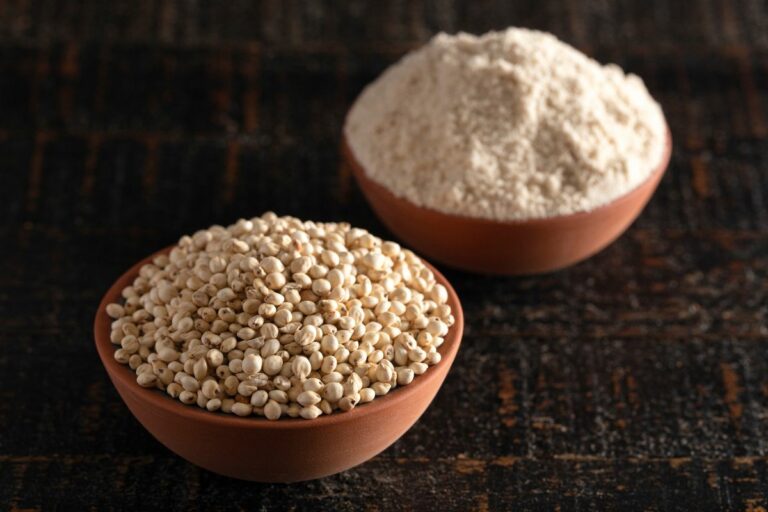Best Substitutes For Hazelnuts
Are you looking for a suitable replacement for hazelnuts in your recipes? Hazelnuts are a culinary delight with their unique flavor and texture, but sometimes they’re not readily available or cause allergies. Fear not! In this blog post, we’ll explore the best substitutes for hazelnuts that will still satisfy your taste buds. Discover nutty alternatives and non-nutty options that will make your dishes just as delicious. Get ready to take your cooking and baking to new heights!
The culinary importance of hazelnuts
Hazelnuts hold a prestigious position in the culinary world, with chefs and home cooks alike appreciating their unique flavor and versatile applications. Whether perfectly toasted to bring out their pleasantly sweet, slightly bitter, and distinctively buttery richness or ground into flour for dessert recipes like cakes and pastries, hazelnuts elevate the taste of dishes.
Known by alternative names such as filberts or cobnuts depending on regions, they are prized for adding crunch to salads or lending subtle depths of flavor to sauces. Even outside whole food use, Hazelnut oil gives refined touches to dishes while its extract enhances sweetness in desserts.
A key player in luxury confections often paired with chocolate (think Nutella), these nuts amp up indulgence factor – no wonder almonds compete closely as one of the best substitutes for hazelnuts! But thanks to nut allergies and variable availability (seasonal factors), exploring other options like macadamia nuts, cashews is beneficial when you need that irresistible nutty delight without having actual hazelnuts at hand!
The need for hazelnut substitutes
Finding a suitable substitute for hazelnuts is essential for various reasons. Some individuals may have allergies to these nuts, which could potentially pose serious health risks. Using alternatives like almonds, macadamia nuts, and cashews can help those with allergies still enjoy the rich flavor and crunch that hazelnuts typically bring to recipes.
Furthermore, availability or cost can also necessitate switching up the choice of nuts in cooking or baking. Hazelnut substitutes are versatile and provide similar nutritional value, making them a practical solution during such instances.
Plus, they widen the range of flavors in meals while maintaining dietary requirements or preferences without compromising taste and texture.
Factors to Consider When Choosing a Hazelnut Substitute
When choosing a hazelnut substitute, it is important to consider factors such as texture, flavor, and nutritional content.
Texture
Texture is an important factor to consider when substituting hazelnuts in recipes. Hazelnuts have a slightly crunchy texture, which adds a delightful element to dishes like cookies and cakes.
When choosing a substitute, it’s crucial to select nuts that offer a similar texture. Almonds, for example, provide the same satisfying crunch as hazelnuts and can be used in various recipes.
Macadamia nuts are another great option as they have a buttery texture that complements baked goods beautifully. Walnuts also offer a crunchy texture that makes them an excellent alternative for hazelnuts in both sweet and savory dishes.
Flavor
Hazelnuts have a unique and distinct flavor that adds depth to various dishes. Their slightly sweet and nutty taste is often described as rich and earthy, making them a popular choice for both sweet and savory recipes.
However, if you’re looking for alternatives to hazelnuts, there are plenty of options that can provide similar flavor profiles. Almonds, for example, have a mildly sweet and subtly nutty flavor that pairs well with many dishes.
Macadamia nuts offer a creamy richness with hints of sweetness, while pecans bring buttery undertones to the table. Walnuts also provide a slightly bitter note along with their woodsy flavors.
Nutritional content
Hazelnuts are not only delicious but also packed with nutrients. They are a great source of healthy fats, fiber, vitamins, and minerals. Hazelnuts contain high levels of vitamin E, which is essential for heart health and skin health.
They also provide important minerals like magnesium and potassium. These nuts are low in carbohydrates and have a moderate amount of protein. However, for those looking to substitute hazelnuts in their recipes due to allergies or personal preference, there are other nut options available that offer similar nutritional benefits such as almonds, macadamia nuts, cashews, and walnuts.
These alternatives can be enjoyed as part of a well-balanced diet while still providing essential nutrients like healthy fats and proteins needed for overall wellness.
The Ideal Substitutes: Other Nuts
Other nuts like almonds, pecans, walnuts, and macadamia nuts are excellent replacements for hazelnuts due to their unique flavors and textures.
1. Almonds: The health-conscious substitute
Almonds are considered one of the best substitutes for hazelnuts due to their health benefits and similar texture. Not only are almonds packed with nutrients like vitamin E, magnesium, and healthy fats, but they also provide a satisfying crunch that is reminiscent of hazelnuts.
Whether you’re baking cookies or making confectionery delights, using almonds as a substitute will give your recipes a delicious twist while adding a dose of nutritional value. So if you’re looking for a health-conscious alternative to hazelnuts, reach for some almonds and enjoy their wholesome goodness.
2. Pecans: The buttery substitute
Pecans are a delicious and buttery substitute for hazelnuts. They have a similar texture and flavor, making them an excellent option in recipes that call for hazelnuts. Pecans are commonly used in baking, especially in pies and cookies, where their rich taste adds depth to the dish.
They can also be toasted and sprinkled over salads or included in savory dishes like roasted vegetables or stuffing. Not only do pecans provide a satisfying crunch, but they also offer various health benefits.
They are packed with healthy fats, fiber, and antioxidants that promote heart health and support digestion. So if you’re looking for a flavorful alternative to hazelnuts that will bring a buttery touch to your recipes, give pecans a try!
3. Walnuts: The hearty substitute
Walnuts are a popular choice for those looking to substitute hazelnuts in their recipes. They have a similar flavor and a satisfying crunchy texture, making them an excellent alternative.
Not only do walnuts provide a hearty and nutty taste, but they also offer several health benefits. Packed with omega-3 fatty acids, antioxidants, and fiber, walnuts can contribute to heart health and brain function.
Whether you’re baking cakes or adding them to salads or savory dishes, walnuts can effortlessly step in as a flavorful replacement for hazelnuts.
4. Macadamia Nuts: The tropical substitute
Macadamia nuts are an excellent substitute for hazelnuts, especially if you’re looking to add a tropical twist to your recipes. With their rich and buttery flavor, macadamia nuts can easily replace hazelnuts in both savory and sweet dishes.
They have a similar texture, making them perfect for baking into cookies or crushing into crumbs for pie crusts. Macadamia nuts are also packed with healthy fats and antioxidants, making them a nutritious choice as well.
So next time you’re in need of a hazelnut substitute, consider reaching for these delicious tropical nuts instead!
Beyond Nuts: Non-Nutty Substitutes for Hazelnuts
For those with nut allergies or looking for alternatives, sunflower seeds and pumpkin seeds are excellent non-nutty substitutes for hazelnuts.
5. Sunflower Seeds: The nut-free, allergy-friendly substitute
Sunflower seeds are an excellent nut-free substitute for hazelnuts, making them a great option for those with nut allergies or sensitivities. Not only do they provide a similar crunch and texture to hazelnuts, but they also offer a mild, slightly sweet flavor that complements both sweet and savory dishes.
In addition to being allergy-friendly, sunflower seeds are packed with nutrients like vitamin E, magnesium, and healthy fats. They can be used in baking recipes as well as in salads, stir-fries, and homemade granola.
So if you’re looking for a versatile and allergen-free alternative to hazelnuts, sunflower seeds are the way to go!
6. Pumpkin Seeds: The fall favorite substitute
Pumpkin seeds are a fantastic substitute for hazelnuts, especially during the fall season. Not only do they add a delightful crunch to recipes, but they also bring a unique flavor that pairs well with both sweet and savory dishes.
These seeds are packed with essential nutrients like magnesium, zinc, and omega-3 fatty acids, making them an excellent choice for those looking for a healthy alternative. Whether you’re adding them to your morning granola or using them as a topping for roasted vegetables, pumpkin seeds offer a delicious and nutritious twist to your favorite hazelnut recipes.
Special Cases: Hazelnut Oil and Hazelnut Extract Substitutes
For those who are looking for substitutes for hazelnut oil and hazelnut extract, there are a few options available. Sesame oil can be used as a substitute for hazelnut oil due to its similar nutty flavor profile.
It can add a rich and distinctive taste to your dishes just like hazelnut oil would. As for hazelnut extract, almond extract is a great alternative that can provide a similar depth of flavor to your recipes without the risk of allergies or any other health concerns associated with hazelnuts.
Both sesame oil and almond extract can be easily found in most grocery stores, making them convenient choices when you need to replace these specialty ingredients.
Sesame Oil: Substitute for hazelnut oil
Sesame oil is a great substitute for hazelnut oil in recipes. It has a rich, nutty flavor and can add depth to dishes just like hazelnut oil. Sesame oil is commonly used in Asian cuisines and is known for its distinct aroma.
It pairs well with both sweet and savory flavors, making it versatile in various recipes. Additionally, sesame oil is widely available and more affordable than hazelnut oil, making it a convenient substitute for those looking to replicate the nutty flavor of hazelnuts without breaking the bank.
Almond Extract: Substitute for hazelnut extract
Almond extract is a popular substitute for hazelnut extract in recipes. It has a similar nutty flavor profile and can add depth to baked goods, desserts, and other dishes. Almond extract is made by combining almond oil with alcohol to create a concentrated flavoring agent.
It provides a sweet and slightly floral aroma, which complements many recipes that call for hazelnut extract. The rich and distinct taste of almond extract makes it an excellent option when hazelnut extract is not available or if you prefer the taste of almonds.
Let’s Go Healthy: Nutritional Comparison of Hazelnuts and Their Substitutes
Hazelnuts are packed with nutrients, but if you’re looking for a healthier alternative, almonds, macadamia nuts, and cashews are great substitutes.
Nutrient content of common substitutes
Almonds, cashews, macadamia nuts, and walnuts are all excellent substitutes for hazelnuts when it comes to nutritional content. Almonds contain high amounts of vitamin E and healthy fats, while cashews provide a good source of copper and magnesium.
Macadamia nuts are rich in monounsaturated fats and have a similar creamy texture to hazelnuts. Walnuts offer omega-3 fatty acids and antioxidants that can benefit heart health. These nut substitutes not only add flavor and crunch to recipes but also contribute essential nutrients to your diet.
Best substitutes for specific dietary needs
For those with specific dietary needs, such as gluten-free or vegan, there are several excellent hazelnut substitutes available. Discover the best alternatives for your dietary preferences and get creative in the kitchen!
Bringing It to the Table: How to Incorporate Substitutes into Recipes
- Swap hazelnuts with almond slices or crushed almonds for added texture and a subtle nutty flavor.
- Replace hazelnuts with macadamia nuts to add a tropical twist to your recipes.
- Use chopped pecans as a substitute for hazelnuts in baked goods like cookies, cakes, and muffins.
- Experiment with walnuts as an alternative to hazelnuts in recipes that call for a crunchy texture and rich flavor.
- Incorporate sunflower seeds into your recipes for a nut-free option that adds a satisfying crunch.
- Add pumpkin seeds to your dishes to bring in a fall favorite flavor and texture instead of hazelnuts.
Baking with hazelnut substitutes
For those who love baking but have allergies or simply want to experiment with different flavors, using hazelnut substitutes can be a game-changer. Thankfully, there are several options that can easily replace hazelnuts in your favorite recipes.
Almonds, for example, are considered one of the best substitutes for hazelnuts. They offer a similar texture and crunch when used as a raw substitute. Macadamia nuts are another great alternative due to their similar appearance and texture to hazelnuts.
Additionally, walnuts can provide a comparable flavor and crunchy texture that work well in cakes and other baked goods. So go ahead and explore these nutty alternatives to add some excitement to your next baking adventure!
Cooking savory dishes with hazelnut substitutes
Savory dishes can also benefit from hazelnut substitutes. For example, cashews can add a creamy and nutty flavor to stir-fries or grain bowls. Macadamia nuts can be used in sauces or dressings for a rich and buttery taste.
Walnuts, with their earthy flavor and crunchy texture, make a great addition to salads or roasted vegetable dishes. These alternatives provide a similar depth of flavor and satisfying crunch that hazelnuts bring to savory meals without compromising on taste.
Whether it’s adding them as toppings or incorporating them into the dish itself, these substitutes offer versatility for cooking up delicious savory creations.
Conclusion
In conclusion, when it comes to finding the best substitutes for hazelnuts, there are plenty of options to choose from. Whether you prefer nuts like almonds, pecans, or walnuts, or even non-nutty alternatives like sunflower seeds or pumpkin seeds, there is a substitute out there that can easily satisfy your culinary needs.
With these alternatives at hand, you don’t have to worry about missing out on the nutty delights in your favorite recipes. So go ahead and explore these substitutes to add a delicious twist to your dishes while accommodating dietary restrictions or allergies.







